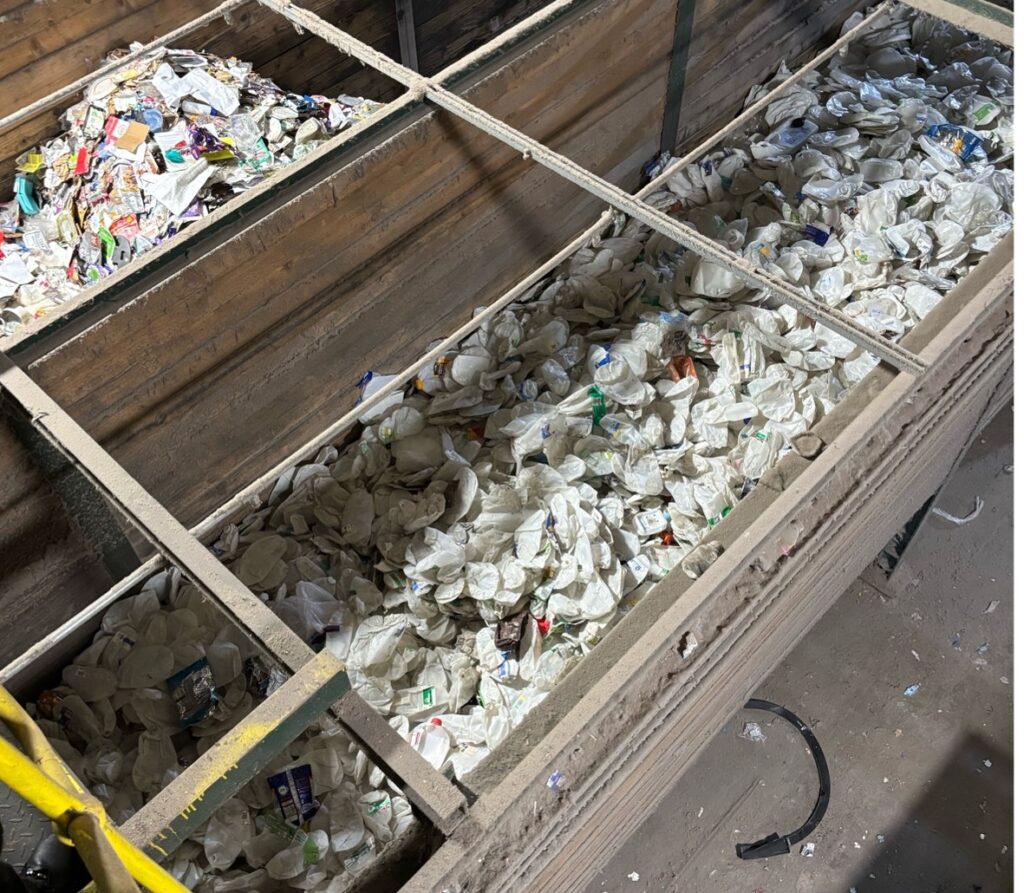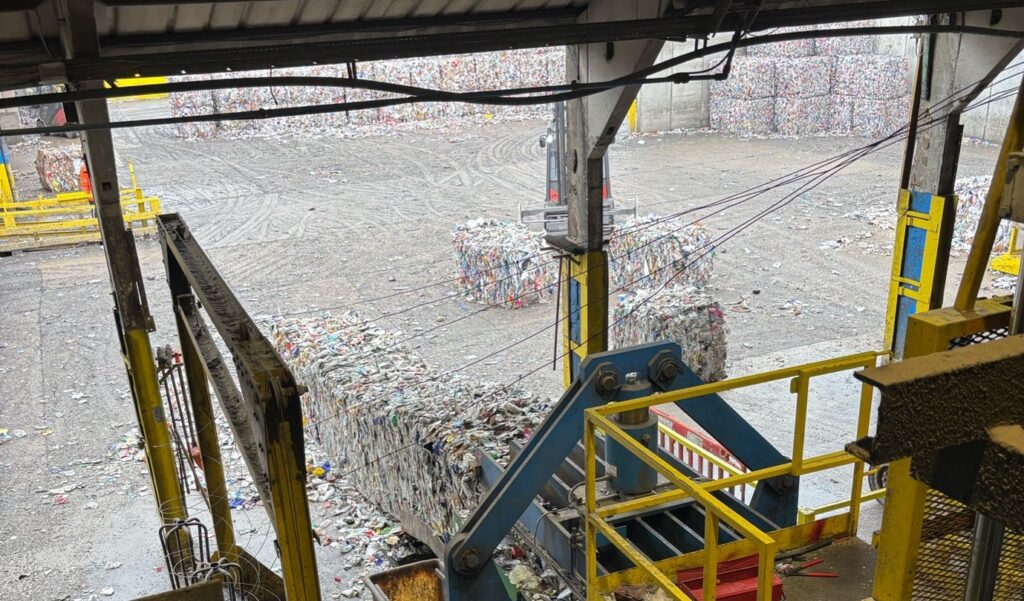What We Saw at Crayford
One of the questions residents often ask us is simple but important: “Does our recycling actually get recycled?”
To find out, Green Councillor Jo Walker organised a trip for councillors to see what happens to the recycling from Hastings and St Leonards. They visited the Crayford N & P Materials Recovery Facility (MRF), which is the biggest recycling centre in Europe.
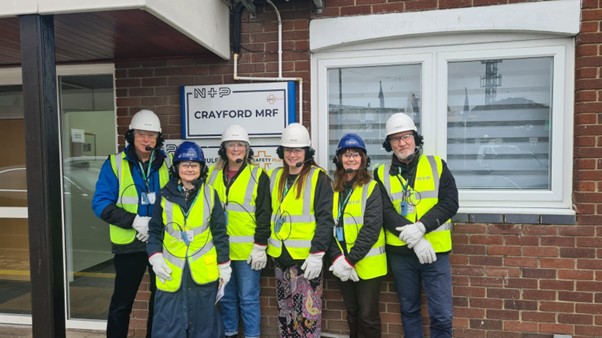
Seeing It First-Hand
From high platforms they looked down on long belts carrying cans, paper, glass, plastics, and more. Large machines and workers sort through the materials, ready to be sent away and made into new products.
The process isn’t perfect – some things shouldn’t be there, like food waste, textiles, or nappies – but most of what residents put in their green bin or pink sack really does get used again.
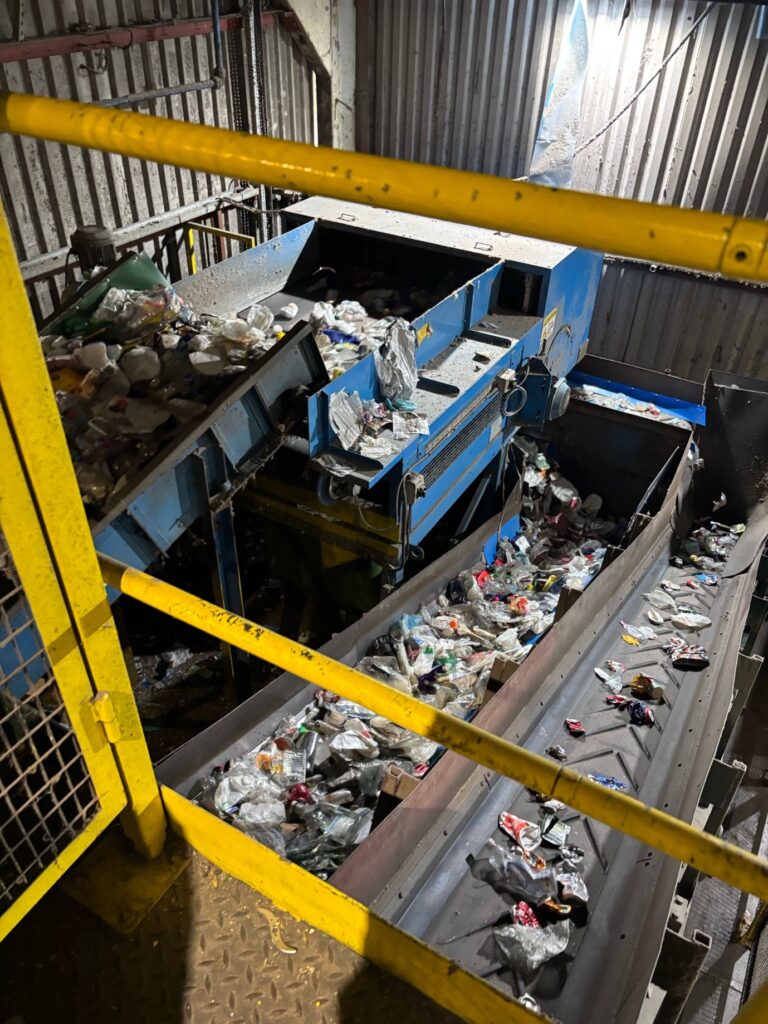
What Materials Are Recovered?
The Crayford site sorts out many different materials – as many as 18 types. These include:
- Paper and card – turned into new boxes and packaging.
- Plastics – recycled into pellets for new plastic products.
- Cans (steel and aluminium) – melted down and made into new metal goods.
- Glass – crushed and reused for bottles or construction.
- Other dry materials – sorted where possible.
Even the small part that cannot be recycled – around 12% – is not wasted. It is turned into Subcoal®, a cleaner fuel that can replace coal in industries like making cement and steel.
Who Buys the Materials?
Once sorted and baled, the materials are sold on so they can be reused:
- Cardboard often goes to Vietnam, where it is made into boxes for China.
- Paper is sent to India, which uses more newsprint than anywhere else in the world.
- Aluminium is bought by companies in the UK, Greece, Germany, and sometimes the United States.
- Steel mostly stays in the UK and Europe.
- Glass is reused here in Britain, often crushed and melted down for new bottles.
- Plastics are recycled both in the UK and Europe, depending on demand.
This shows that recycling is part of a much bigger chain, keeping materials in use across the world.
The Problem Items
We also learned about the biggest troublemakers: vapes and batteries.
If they are put in your bin or sack, they can cause serious fires in the waste trucks and at the plant. Lithium batteries in particular can burst into flames when damaged, and are very hard to put out.
Please help by putting batteries, vapes, and small electrical items in a clear bag and placing it on top of your bin or sack on collection day. That way, they can be taken out safely.
Another challenge is shredded paper. It scatters everywhere and is hard to sort. If you need to recycle it, put it inside a paper envelope first.
And remember, food waste should never go in recycling because it can spoil whole loads of good material.
We also got to see some of the items people put in their recycling that they really shouldn’t, such as helium gas canisters, large hard plastics like children’s toys, toilet seats – and even an umbrella!
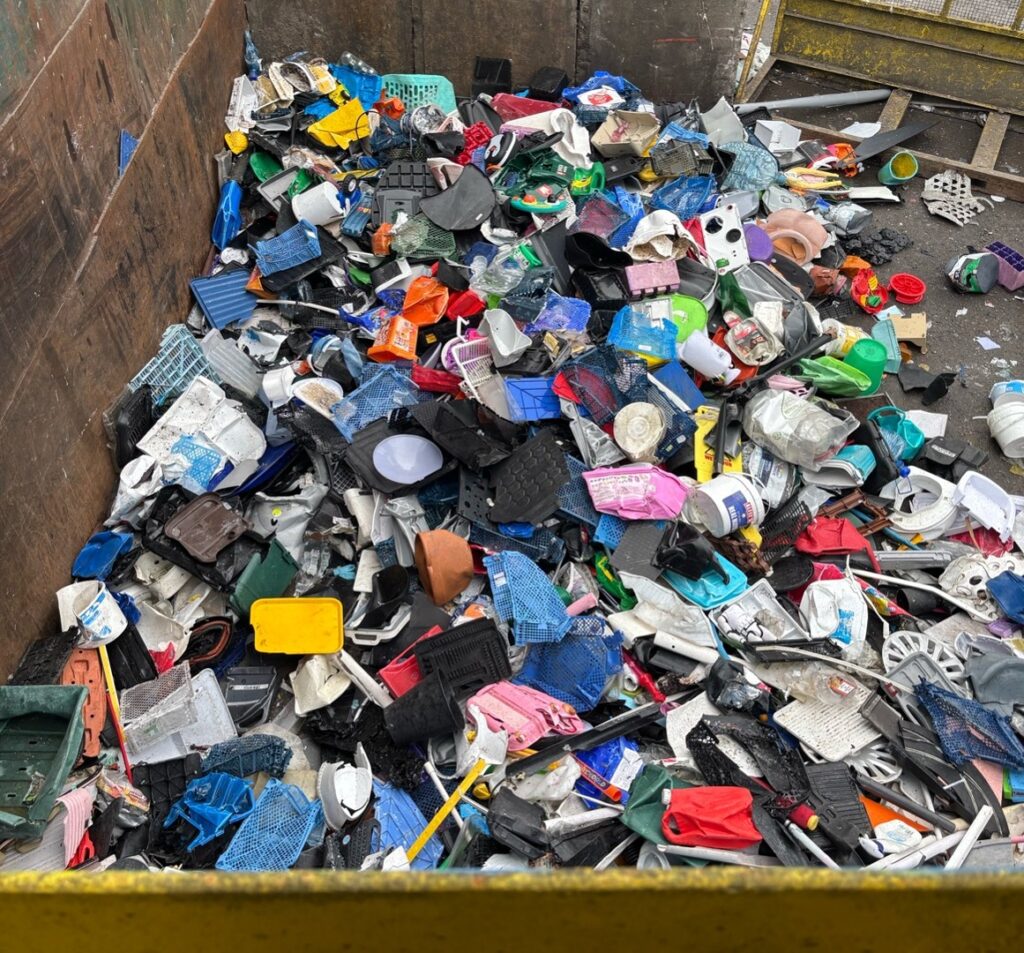
Why It Matters for Hastings and St Leonards
Every item we recycle is one less item sent to landfill or burned. Recycling saves energy, lowers carbon emissions, and keeps valuable materials in use.
But this only works if we all follow the rules. A few reminders:
- Clean materials only – don’t put food waste in your recycling.
- Small electricals, batteries, and vapes – put these in a clear bag on top of your bin or sack.
- Plastics – if it springs back when you squeeze it, it can usually be recycled.
Looking Ahead
From 2026, food waste will also be collected separately in Hastings and St Leonards. This will cut down the amount of rubbish even further and help protect the planet. It will be collected separately from our recycling in smaller food bins.
The Bottom Line
Our visit showed us something very clear: recycling in Hastings and St Leonards works. The bottles, cans, paper, and card you put out each week don’t just disappear. They are sorted, recycled, or turned into clean fuel that helps replace coal.
That means every time you rinse a jar or squash a can, you are helping Hastings and St Leonards become a cleaner, greener place.
